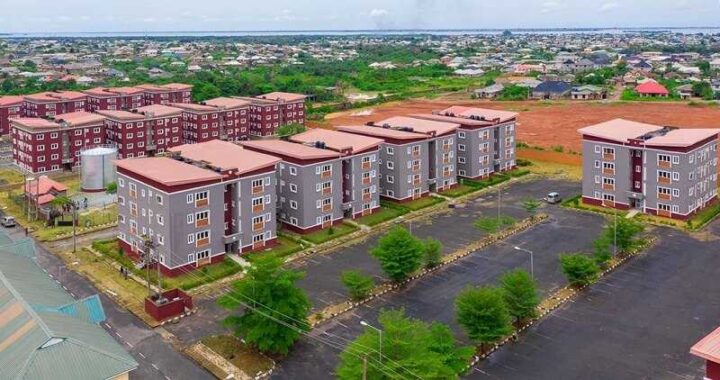Lagos and Ogun states, two of Nigeria’s busiest real estate markets, are grappling with an alarming number of land scam cases annually, as a new report reveals that over 500,000 incidents are recorded between them each year. This staggering figure has stirred concern among property stakeholders and residents, further highlighting the urgent need for reform in Nigeria’s real estate and land administration systems.
The surge in land-related fraud is attributed to a combination of systemic weaknesses, regulatory lapses, and growing demand for property, especially in these two southwestern states that continue to experience urban sprawl. Unsuspecting buyers, often lured by seemingly attractive offers, fall prey to land swindlers who either sell the same plot to multiple people, forge documents, or lay claims to government-acquired or disputed lands.

These scams have become so prevalent that they are now considered part of the risk of doing business in real estate. Many buyers are entangled in long-drawn legal battles or end up losing their life savings entirely. Stakeholders believe the situation has worsened because of weak enforcement mechanisms, a largely paper-based land registry system, and low public awareness of the due process for land acquisition.
Several victims of these fraudulent practices have shared their experiences publicly, citing how they were sold plots of land that turned out to belong to others or were located on government-acquired terrain. Others have been caught in legal disputes due to overlapping land titles or forged certificates of occupancy. In some instances, community land grabbers known locally as “Omonile” illegally sell lands they do not own, sometimes violently resisting the lawful owners.
Experts in the real estate industry have repeatedly emphasized the importance of conducting thorough due diligence before purchasing any piece of land. According to estate surveyors and legal practitioners, many buyers do not engage professionals or conduct adequate background checks, which leaves them vulnerable. They advise that buyers should always verify documents with the appropriate government agencies and use certified estate valuers and legal advisers before making any payment.
Government efforts to curb the menace have been inadequate, critics argue. Although agencies like the Lagos State Real Estate Regulatory Authority (LASRERA) have been set up to sanitize the sector, enforcement is still weak. Many unregistered developers and fraudulent estate agents continue to operate freely, evading prosecution and accountability.
In Ogun State, which shares a border with Lagos and has become a preferred destination for residential development due to its relatively cheaper land prices, land disputes have also become common. The influx of developers and individual buyers has outpaced the state’s capacity to regulate property transactions effectively. The result has been an increase in fraudulent land sales and a breakdown of trust in the system.
To address these challenges, professionals and civil society groups have called for the digitization of land records, enforcement of existing land use laws, and public education on safe land-buying procedures. Some private tech firms have also entered the space, offering digital solutions that verify land ownership and check for encumbrances. While these tools are helpful, their reach is still limited, and many average buyers may not have access to or knowledge of them.
Legal analysts point out that beyond digitization, the Nigerian judicial system also needs to be reformed to handle land-related disputes more efficiently. Currently, cases can drag on for years, discouraging victims from seeking justice. There is also a call for stiffer penalties for individuals and organizations found guilty of land fraud to serve as a deterrent.
Some believe that only a total overhaul of Nigeria’s land administration—especially the review of the Land Use Act of 1978—can bring about lasting change. The Act vests ownership of all land in the state governors, a system that many argue is outdated and prone to abuse. Critics say it encourages bureaucratic bottlenecks and corruption, which further opens doors for fraudulent activities.
Community leaders have also been advised to play a more active role in identifying and reporting illegal land sales. Since many of the fraudulent transactions originate at the grassroots level, involving local chiefs and family landowners, fostering local accountability could reduce the problem significantly.
As the demand for housing and commercial property continues to grow in Lagos and Ogun states, analysts say the land scam crisis—if left unaddressed—could have long-term consequences for development. Investors may become more reluctant to commit to projects, and families may become more hesitant to build or relocate due to fear of losing their property.
In conclusion, the report’s revelation that over 500,000 land scam cases occur annually in Lagos and Ogun states is a wake-up call for the government and stakeholders. Without comprehensive reforms, both legal and technological, the property sector risks being overwhelmed by distrust and lawlessness. For now, prospective land buyers are urged to be extremely cautious and ensure every transaction is properly verified before proceeding.
Support InfoStride News' Credible Journalism: Only credible journalism can guarantee a fair, accountable and transparent society, including democracy and government. It involves a lot of efforts and money. We need your support. Click here to Donate
